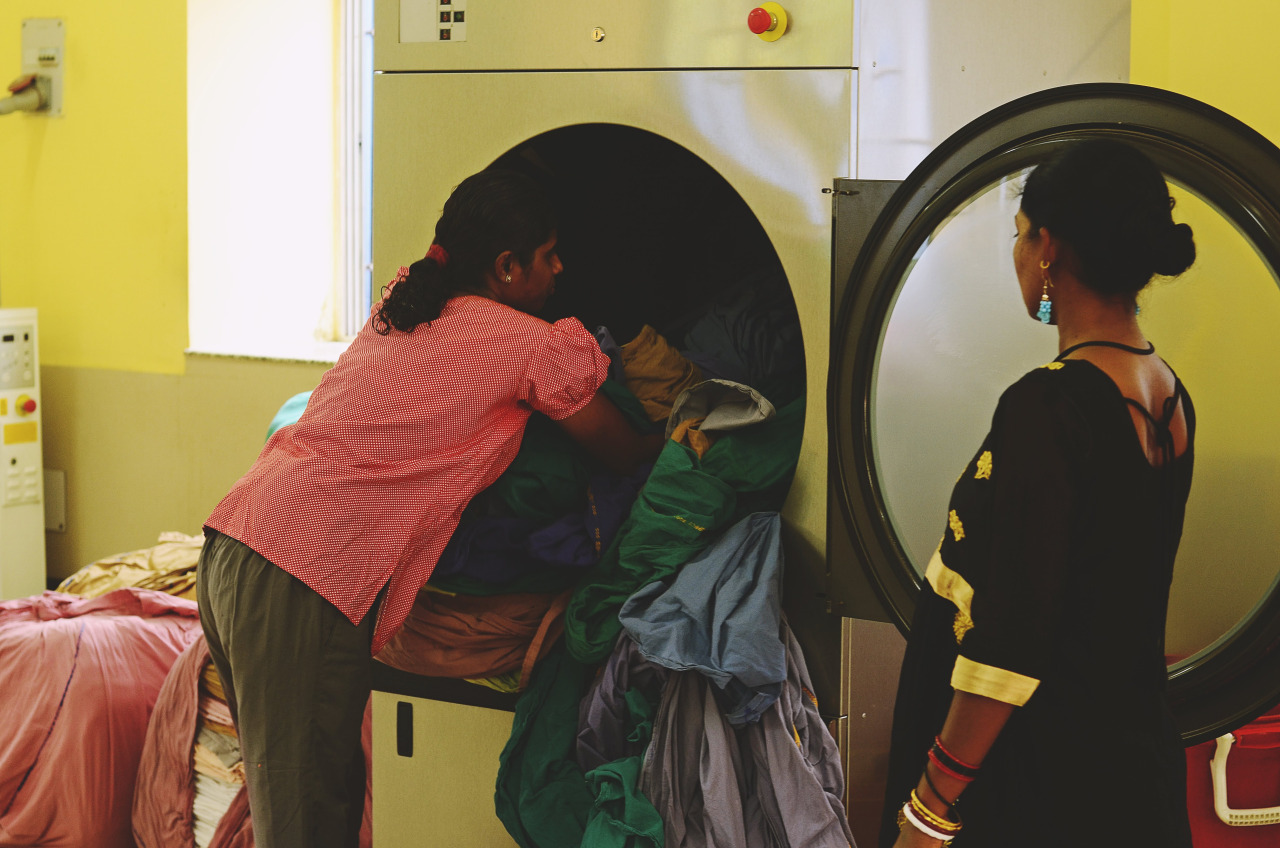10 October, 2018
Life beyond the hospital ward: how Anjali is inspiring hope among persons with psychosocial disabilities in India
India Programme / Partner story
Photo: © Anjali
Shampa* works in a cafeteria located within the Pavlov Mental Health Hospital in Kolkata, West Bengal. On entering the cafeteria, also known as the Cha-Ghar (in Bangla), one cannot help but be struck by the warmth of its staff. The six women who work here, including Shampa, welcome everyone with a radiant smile, a hearty snack and a hot cup of tea or coffee. However, it wasn’t that long ago that these women were patients in the same hospital. In parts of India, mental illness is feared – families worry about the financial burden involved in taking care of individuals who are perceived to not be able to work. This fear adds a layer to the stigma surrounding psychosocial disabilities. It drives people to reject their family members, even though they may have completely recovered. Anjali is a leading organisation that works with mental health institutions and among the communities to advocate for the rights of people with psychosocial disabilities. In working with the mental health hospitals in Kolkata, Anjali became concerned that patients were not receiving support to help them reintegrate back into their communities.
Anjali staff raised their concerns to two hospitals in the region – Pavlov Mental Health Hospital in Kolkata and Baharmapur Hospital in the district of Murshidabad. They then worked with the hospitals to diversify treatment processes, using approaches that do not include drugs. Generally, patients are eager to learn new skills, as they hope to re-establish themselves as independent and able to contribute to the family income. Anjali provides the opportunity for patients to take part in sessions of performing arts, music, painting and theatre.
In addition, over a three-year period, Anjali partnered with the two hospitals to design micro-enterprises in which patients with psychosocial disabilities could work. In Pavlov Hospital it set up a mini-launderette, a tie and dye-unit and a cafeteria. In the Baharmapur hospital (district headquarters of Murshidabad), it built a delicate embroidery unit. Those who participate in the micro-enterprises are mostly individuals who live in the hospitals. However, some of the staff who work in the cafeteria have since returned to their families and travel daily to work. Anjali also assisted cafeteria and laundry room staff to open government bank accounts. Both the women and the men were delighted to see the money in their accounts from their first ever wage.
The more than 50 staff who participate in these micro-enterprises have unknowingly scripted powerful stories of resilience and hope. Their individual accounts of neglect, violence, stigma and dishonour are often hard to believe, but they are also the source of the courage and resolve it takes to rebuild their lives. For example, Shampa fought a court battle to win back custody of her daughter, whom her husband had taken away from her, claiming his wife was of “unsound mental status”.
These micro-enterprises are helping to break harmful stereotypes. They demonstrate clearly why people with psychosocial disabilities shouldn’t be written off and how they are functional and employable. The fact that these women and men work to ensure that the hospital has crisp, clean linen is enough to dispel the age-old myth which denies people with access to respectable, productive lives on leaving hospital.

Photo: © Anjali
The Cha Ghar quietly makes the point that people who have once suffered from psychosocial disabilities have equal rights and can enjoy dignified lives. It records a daily footfall of 200 customers – including hospital staff, patients or their family members. The customers are pleased that they do not have to leave the hospital premises in search of affordable and healthy food. With the wage that Shampa and her co-workers earn every month, they no longer have to ask their family members for money to pay for minor expenses or to send the children to school.
Anjali seeded the ideas for the micro-enterprises, supported hospital authorities to carefully pursue these ideas, and moved the systems to implement them in ways that captured the imaginations and hopes of these women and men. The success of these efforts has motivated others to try such initiatives in other locations.
Anjali and its government counterparts are only too excited to lend this support. Shampa and her co-workers will soon become the inspiration for others who have forgotten their hopes of a “life beyond the wards”. Anjali, the hospitals and the volunteers continue their work to find suitable alternatives to the institutions, where individuals can move to in the pursuit of independent and successful lives.
Anjali is an Oak partner through Oak Foundation’s India Programme, which you can find out more about here. This grant helps to reduce reliance on closed institutions. It is also part of one of our cross-cutting themes – to empower and support communities, including women and other marginalised groups, in order for them to realise their entitlements and full potential. Learn more about Anjali here.
Source: This article was published by the United Nations in India
* Not her real name
** The women featured in the above photographs have been empowered by the support that Anjali provides, but do not correspond to the names of the people mentioned above.